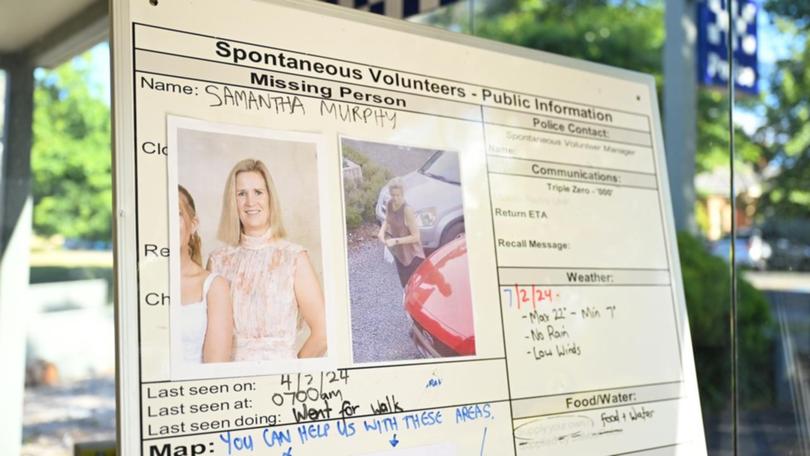EDITORIAL: Cops shouldn’t have to pay telcos to help on cases like Samantha Murphy
If the police ask for your help to catch a criminal, you don’t then send them a bill for your trouble.

The clever use of telecommunications data and services has become one of the most powerful crime-fighting weapons in police forces’ arsenals.
Police can use phone data to track dangerous offenders or someone whose life is in danger.
Urgent text messages can be sent out to thousands of phones during lifesaving investigations, such as in the search for missing children, or people with dementia.
Sign up to The Nightly's newsletters.
Get the first look at the digital newspaper, curated daily stories and breaking headlines delivered to your inbox.
By continuing you agree to our Terms and Privacy Policy.Data evidence is crucial when prosecuting paedophiles for sharing or receiving child abuse material.
Police can also use data to prove whether a suspect — or at least their phone — was in the area when a crime was believed to have been committed.
This was a tactic used by Victorian police in their investigation into the disappearance of Ballarat woman Samantha Murphy. Earlier this month, police revealed they planned to comb through mobile data for phones which “pinged” off certain cellular towers at crucial times after Ms Murphy left her Ballarat home for a run from which she never returned.
Two days after they made that revelation, a man was in custody charged with Ms Murphy’s murder.
But all of this comes at a price.
Police forces are shelling out big bucks to access this potentially lifesaving information.
In the aftermath of the successful operation to find and rescue little Cleo Smith, stolen from her tent at a remote campsite in 2022, WA Police Commissioner Col Blanch railed against the complicated system, which sees telcos set their own, widely varying costs.
He revealed his police force spent about $1 million in a year with the telcos, and said the cost to access enough information to charge a single paedophile could run into the tens of thousands of dollars.
“I think that’s a lot of money for taxpayers to bear when we are trying to do the right thing by the community,” he said at the time.
Worryingly, former Victorian homicide detective Charlie Bezzina says that police may limit the information they request from telcos in an effort to keep costs as low as possible, potentially slowing down their efforts to bring offenders to justice.
If a cop turns up at your door asking for footage from your home security system which may help them catch a bad guy, you hand it over, happy to help in some small way.
You don’t then send them a bill for your trouble.
The Telecommunications Act states that companies are able to charge police for access to their data to cover their costs but cannot make a profit. That’s fair enough, perhaps.
But so far there appears to be little appetite to find a simpler, more cost-effective way for cops to do their jobs.
An offer made several years ago by police to provide telcos an officer to help with data requests, in an effort to speed up requests and keep costs down, was rebuffed, according to Mr Bezzina.
A fairer, less convoluted system should be devised — with or without the telcos’ co-operation.
Responsibility for the editorial comment is taken by The Nightly Editor-in-Chief Anthony De Ceglie.
